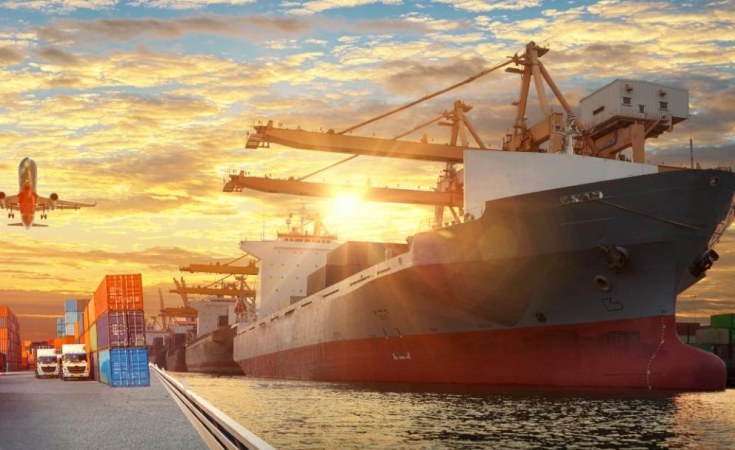Sharm El-Sheikh, 9 November 2022 (ECA) - Acting Executive Secretary of the Economic Commission for Africa (ECA), Antonio Pedro, has highlighted the need for Landlocked Developing Countries (LLDCs) to invest in long-term climate-resilient infrastructure, particularly transport systems. He was speaking on 9 November during a COP27 side event on Promoting Resilience and Sustainability of Transport Systems in Landlocked Developing Countries.
Mr Pedro explained that, “LLDCs need to build their capacity to anticipate, prepare for, and adapt to changing climate conditions; as well as to withstand, respond to, and recover rapidly from disruptions caused by climate conditions and other shocks such as the COVID-19 pandemic. They require the capacity for proactive adaptation through changes in road design standards, more resilient construction, and adequate road maintenance.”
To support training, development and capacity building, the ECA Chief recommended fully integrating climate risk analysis in the project cycle and pre-feasibility studies of individual investments; developing technical guidelines on the integration of climate change in the planning and design of infrastructure; establishing climate resilience project preparatory facilities; and launching training programmes for climate-resilient infrastructure.
He also explained that the ECA is championing the digitalization of transport corridors in Africa. For instance, by undertaking a gap assessment on the digitalization of the logistics industry in Africa in collaboration with the Ministry of Transport and Logistics of Ethiopia.
Countries shared their experiences during the session. Minister of Environment, Climate, Tourism and Hospitality Industry of Zimbabwe, Nqobizitha Mangaliso Ndlovu, noted the government is looking at resilient transport as a critical facet of building resilience in Zimbabwe, “we are one of the few countries in the region that is blending fuel with ethanol. Currently, 20% of the fuel is green fuel. We have also levied our citizens for using fossil fuels, which we then use to fund green and renewable projects. We are creating a carbon fund which we will use to build resilience in the transport industry."
The side event was organized by the UN Office of the High Representative for the Least Developed Countries, Landlocked Developing Countries and Small Island Developing States, the Republic of Botswana and the UN Conference on Trade and Development.
-Ends-
About the United Nations Economic Commission for Africa
Established by the Economic and Social Council (ECOSOC) of the United Nations (UN) in 1958 as one of the UN’s five regional commissions, the United Nations Economic Commission for Africa’s (ECA’s) mandate is to promote the economic and social development of its Member States , foster intraregional integration and promote international cooperation for Africa’s development. ECA is made up of 54 Member States and plays a dual role as a regional arm of the UN and as a key component of the African institutional landscape.
For more information, visit: www.uneca.org
Issued by:
Communications Section
Economic Commission for Africa
PO Box 3001
Addis Ababa
Ethiopia
Tel: +251 11 551 5826
E-mail: eca-info@un.org


